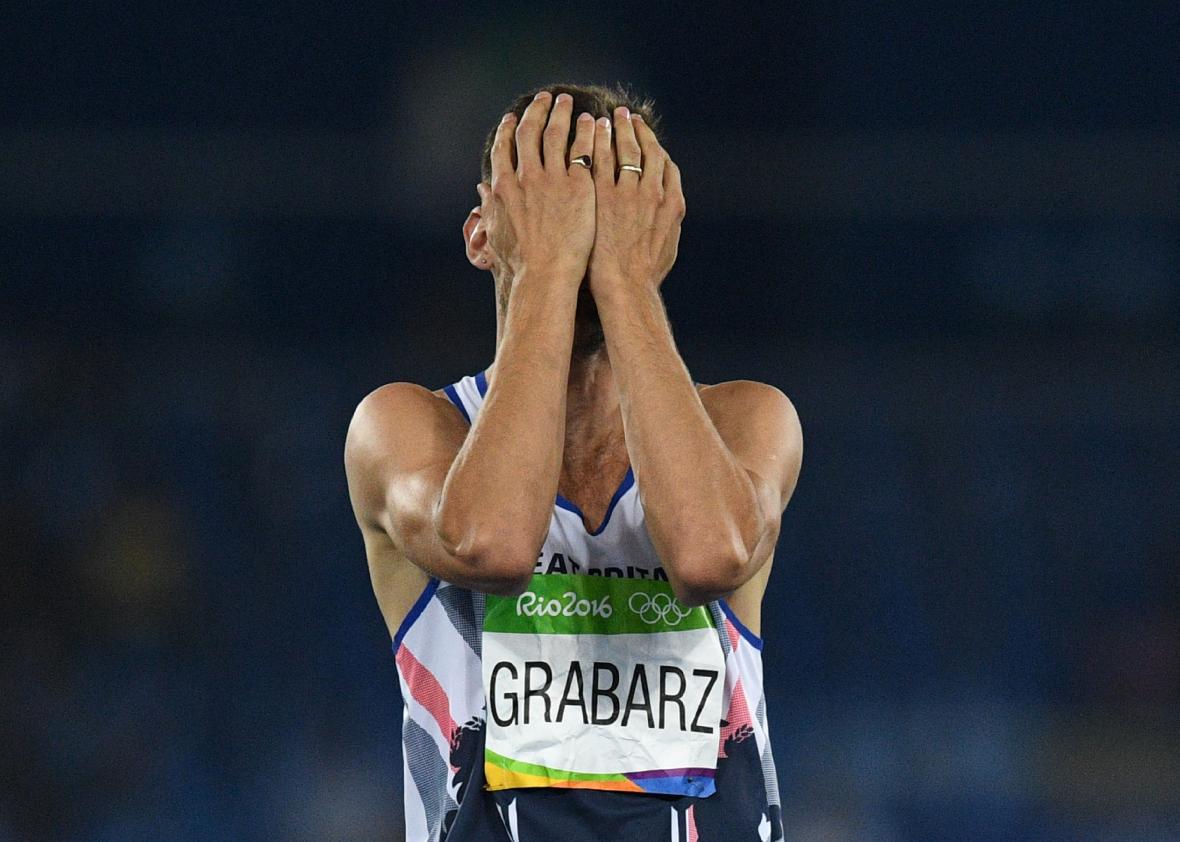Dwight Stones spent decades covering the Olympics for NBC. A two-time Olympic high jump medalist, Stones’ specialty was the field events, and he brought his knowledge to bear in describing all manner of throwing-and-jumping-related disciplines. In an episode of Slate’s sports podcast Hang Up and Listen, Stones told Josh Levin about his constant frustration with his NBC bosses, who did not listen to his pleas to give more airtime to the field events. He said, “Field is 50 percent of the name and 43 percent of the events. And for it to be ignored and belittled the way it has been at the network of the Olympics for the United States through 2032, is a disgrace and a disservice.”
Stones, who is broadcasting the Summer Olympics for ESPN International, says he believes he was not retained by NBC for the Rio Games because of his battles with management about how track and field should be portrayed on television.
You can read excerpts from the interview below, and you can listen to the entire interview with Stones by clicking on the player beneath this paragraph and fast-forwarding to the 3:14 mark.
On why he’s not calling the Olympics for NBC Sports:
They got really sick and tired of me constantly harping on them doing the things that they would tell me that they wanted to do. They would sit me down and say, “OK, we need to make field events a bigger part of the broadcast. We need to have more parity between track and field.” And on and on and on. … And I said, “Yeah, I’m all about that, this is what we need to do” and I would throw idea after idea after idea at them.
…
We had two terrible producers of track and field over the last 20 years. They are not innovators, they do not want to do anything but play it safe, they can’t produce their way out of a paper bag, and one of them runs the place now. So when you’ve got that in combination with the unwillingness to break out of the old mold, and you’ve got a guy screaming in the background, “You said we were going to do this, you said last week you wanted to do this, why aren’t we doing it?” And you get a guy like me who’s also now in his 60s—there’s only one analyst at NBC that’s older than me—so the combination of those two things is why I’m very happily down in Rio for ESPN International.
On why field events don’t get much airtime:
It’s safe to cover running events. They’re very segmentable. They fit beautifully into eight, nine, 10-minute periods where you can go to a commercial on either end, you can promote other things, they don’t go away somewhere, it’s predictable. Whether they run fast or slow, they still are going to race each other and they’re going to go ’round and ’round and ’round or in a straight line. It’s packageable.
Field events, not so much. You can’t really know how long they’re going to take. You can’t really know how far they’re going to throw or how far they’re going to jump or how high they’re going to jump. On paper, the event may look like it’s going to be spectacular and it can just be a dud. But they’re not willing to roll the dice.
On how to improve track and field coverage:
This is what you have to do: In an hour or a 90-minute show, you have to be willing to take one running event out of the live window. If you really want to devote time to a field event and do it correctly—I’m talking about bringing me in a day early, doing sit-down interviews with all the protagonists, running a feature on how the technique works, and let me educate the public with really cool, sexy graphics and slow motion, video, and all that other stuff and have it take as long as a running event. Nine minutes, to do a high jump and a shot put, maybe. Two events. And I’m willing to be the hero or the goat on whether the event pans out or not. I’ll be the one responsible if I don’t pick an event that does well.
